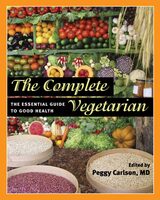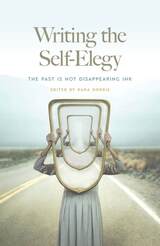
"At its peak in the late sixteenth century," this history begins, "Spain controlled the first empire upon which the sun never set and exercised a tremendous influence in European affairs. By 1600, thoughtful Spaniards knew that something had gone terribly wrong, and by 1650 the rest of Europe knew it too."
By focusing on one Castilian city, Ciudad Real, Carla Rahn Phillips seeks to shed light on the mysterious downfall of Spanish power. Looking first at the general history of the city and region, she goes on to examine population, agriculture, industry, taxation, and elite patterns of investment. She shows how Ciudad Real's economy grew from about 1500 to 1580, faltered and stagnated through most of the seventeenth century, and reestablished a subsistence economy around 1750. Self-contained though Ciudad Real was, its history illuminates economic and social change during Spain's Golden Age.

Essential and in-depth The Complete Vegetarian is an invaluable guide for health professionals and the growing number of people who have adopted or want to adopt a vegetarian lifestyle.

Honest, aching, and intimate, self-elegies are unique poems focusing on loss rather than death, mourning versions of the self that are forgotten or that never existed. Within their lyrical frame, multiple selves can coexist—wise and naïve, angry and resigned—along with multiple timelines, each possible path stemming from one small choice that both creates new selves and negates potential selves. Giving voice to pain while complicating personal truths, self-elegies are an ideal poetic form for our time, compelling us to question our close-minded certainties, heal divides, and rethink our relation to others.
In Writing the Self-Elegy, poet Kara Dorris introduces us to this prismatic tradition and its potential to forge new worlds. The self-elegies she includes in this anthology mix autobiography and poetics, blending craft with race, gender, sexuality, ability and disability, and place—all of the private and public elements that build individual and social identity. These poems reflect our complicated present while connecting us to our past, acting as lenses for understanding, and defining the self while facilitating reinvention. The twenty-eight poets included in this volume each practice self-elegy differently, realizing the full range of the form. In addition to a short essay that encapsulates the core value of the genre and its structural power, each poet’s contribution concludes with writing prompts that will be an inspiration inside the classroom and out. This is an anthology readers will keep close and share, exemplifying a style of writing that is as playful as it is interrogative and that restores the self in its confrontation with grief.
READERS
Browse our collection.
PUBLISHERS
See BiblioVault's publisher services.
STUDENT SERVICES
Files for college accessibility offices.
UChicago Accessibility Resources
home | accessibility | search | about | contact us
BiblioVault ® 2001 - 2024
The University of Chicago Press









